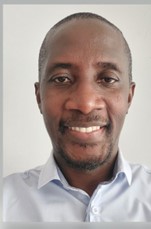PhD Candidates
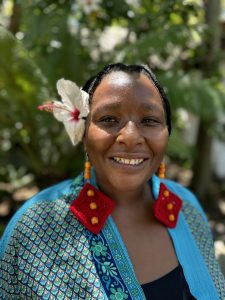
Ongezwa Mbele
Ongezwa studies under the research supervision of Professor June Bam-Hutchison and is an applied theatre practitioner, storyteller, and published poet. A lecturer at the University of KwaZulu-Natal, and a 2021 Atlantic fellow for Racial Equity, Ongezwa has been a guest editor for Agenda Journal and Imbiza Journal for African writing. She has co-authored various research journal articles and her poems have been featured in various anthologies. Her professional interest is in using theatre techniques and storytelling to engage with diverse communities about their relevant matters. She has facilitated theatre programmes/projects with young people and incarcerated people in South Africa and Norway. Yearly, Ongezwa facilitates intercultural training workshops for Norec (a Norwegian and African professional exchange programme). Collaboration is at the heart of her interest, and she desires to archive and practice theatrical interventions with various communities.
She was recently announced as the recipient of a 2025 award of the Next Generation Social Sciences in Africa (SSRC) Next Generation Fellowship.
https://www.ssrc.org/programs/next-generation-social-sciences-in-africa/
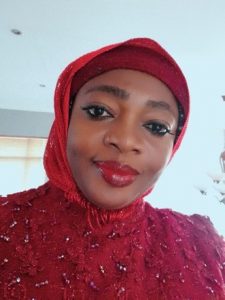
Maryam Chinasa Adewunmi
Maryam is pursuing her doctoral research in the Africanisation of the International Relations Honours curriculum at selected universities in South Africa. She is also interested in related issues of African Feminist indigenous knowledge, and presented at CERT’s inaugural Women’s Day Circle in August 2023 on “Re-centring Indigenous Feminism in Knowledge for Educational Transformation in Africa”, where she shared perspectives from Nigeria. The circle involved a conversation on what throws indigenous women ‘off-centre’ with Professor Darlene Miller (Thabo Mbeki School of Governance, UNISA) and fellow research scholar and indigenous feminist environmental activist Vanessa Ludwig from African Feminist Studies at the University of Cape Town.
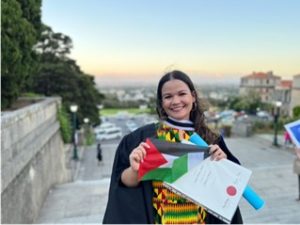
Eshcha Adams
Eshcha is an educator and researcher based in Cape Town, where she was born and raised. She completed her undergraduate degree in dance education at the University of Cape Town in 2015, thereafter completing her Honours’ and Masters degrees in Ethnomusicology at UCT in 2017 and 2022 respectively. Eshcha has a keen interest in decolonial-led research and praxis in education and broader African Studies, specifically San and Khoi research studies. She has in-depth experience of teaching in poor townships at high school level and has had the privilege of being part of various groundbreaking global research projects involving a number of universities on Indigenous Knowledge and curriculum development and the building of digital archives with San and Khoi communities. The most recent projects being the Endangered Languages Digital Archive (UCT) and the WUN !Gâ re – Rangatiranga – Dadirri : Decolonizing the ‘capture of knowledge’ (2019 – 2022) both led by Professor June Bam. Her most recent involvement is as a researcher for the Sarah Baartman Centre for Remembrance in Hankey, Eastern Cape.
Her masters research work focused on the Kalahari Desert Festival, she positioned the festival as a catalytic and re-imaginative space within the broader field of San and Khoi cultural sustainability and heritage work.
She’s currently a PhD student based at CERT and is focusing on ‘Deep Listening’ as an Indigenous Pedagogical Methodology: the co-design of an indigenous-focused Grade 8 Creative Arts Curriculum for relevant schools on the Cape Flats in South Africa. She is supervised jointly by Professor June Bam and Dr Dwayne Donald who is based at the University of Alberta. For her PhD work she is interested in designing an indigenous led and focused curriculum supplementation for South African children to engage deep listening as they ‘remember’ who they are through knowledge of the plants, environment, and movement.
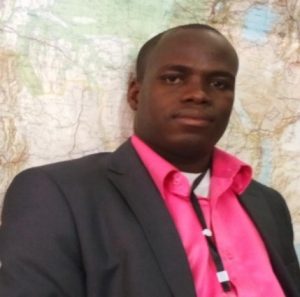
Drissa Tangara
Drissa Tangara graduated in DEA [M.A] in Education Sciences; Specialized: Sociology of Education from Higher Institute for Training and Applied Research –ISFRA Bamako, Republic of Mali. Prior to his Master’s Degree, he attended the Global Labor University programme in Union Rights, Policy and Practice at Wits University through a FES and ILO scholarship in 2015. In 2016, he attended the 7th annual African Doctoral Academy (ADA) Summer School at Stellenbosch University in partnership with Stellenbosch Institute of Advance Studies (STIAS) and Point Sud Centre. Drissa is currently a junior lecturer at University Institute of Technologies (IUT), University of Letters and Human Sciences (ULSHB), and Junior Researcher at Center for Research on Local Knowledge- Point Sud Centre, Bamako. He has contributed to various research activities for organisations and research centers such as Oxfam-Mali, Education International-Brussels, Point Sud Centre-Bamako, SIPRI-Stockholm and IHA-CREPOS Dakar. Young Leader and Teacher Union Activist, Mr Tangara is a member of various youth social movements in Mali, West Africa and others on the African continent such as Wits-GLU Alumnus Network; GLU-Africa Network; Réseau YALA-Mali; and Youth African Activists Network (YAAN), Gaborone, Botswana. Drissa’s doctoral study, under the research supervision of Professor Chisholm and Vally, focuses on how smartphone massive and rapid appropriation by students at ULSHB is addressing the pedagogical challenges in terms of access, equity and inequality in Mali higher education.
Publications and Talks:
« L’administration municipale et la gestion foncière périurbaine de Bamako : cas de la mairie de la commune VI du district de Bamako » Co-authors : Dr. Lamine Doumbia ; Drissa Tangara, PhD researcher (an ongoing project).
“ICTs and Teacher Education: Can Technology Solve the Teaching Shortages in Mali?” Co-authors: Carol Anne Spree, PhD; Drissa TANGARA, Research Associate, published by Education International Head office, Brussels, Belgium, 2019.
“New media: towards an innovative unionism or a tool for bargaining?” Presented at annual African Trade Union Alumni Conference in November 2018, Wits-Club, University of Witwatersrand, Johannesburg, South Africa. https://www.youtube.com/watch?v=clm5tI_W8Kw
« Changements climatiques et mobilité des peuls nomades dans le Delta Intérieur du Niger au Mali ». Presented and published by IHA-CREPOS, Dakar, Senegal, 2018. https://ihacrepos.hypotheses.org/823 .
“Youth, Politics and Union revitalization: a case study of Malian youth movements”. Presented at GLU-Wits Alumni Annual Conference in November 2017, Wits-club, University of Witwatersrand, Johannesburg, South Africa.
“Re-thinking the identity of student in the Era of Smartphones” presented at ECAS2017, University of Basel, Switzerland.
https://ecasconference.org/2017/panels#authors
“Analysing Social Protection Systems in Mali” presented at Symposium on Social Protection Systems-Tying the knots- 5-6 September 2016; Bonn- Rhein-Sieg University of Applied sciences, Germany.
https://www.h-brs.de/en/sv/presented-poster-social-protection-symposium-2016
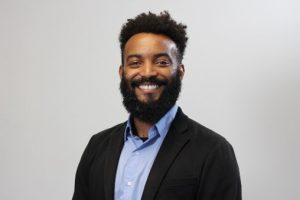
Evan Hendon
Evan Hendon is a PhD candidate studying institutional logics in public higher education institutions in South Africa, and their impact on a university’s conceptualization and approach to 4IR development. Before studying at UJ, Evan received his Masters in International Educational Development from Teachers College, Columbia University in New York where he studied education finance and transition between secondary to tertiary education, with a specific focus in the US, Jamaica, and Kenya. He did his undergraduate studies at Brown University where he double-concentrated in Africana Studies and Political Science.His areas of research include higher education administration, higher education innovation, teacher education, and higher education transformation. In addition to his academic pursuits, Evan is a co-founder and Chief Programme Officer of Instill Education, a Pan-African private higher education institution focused on teacher and school leadership development and ongoing continual professional development of licensed educators operating in Ghana, Kenya, Nigeria, and South Africa.
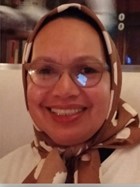
Fatima Noordien
Fatima describes herself as a lifelong learner and is currently a practicing educator in the public school system of South Africa. She brings a wealth of teaching experience spanning diverse social contexts in schools, spanning decades. Fatima is embarking on a doctoral study in the form of an auto-ethnographical study, which will reflect on her teaching practice in schools, from apartheid to post-apartheid – with a focus on navigating contesting knowledges, and the challenges of transformational and inclusive education practices encountered in classrooms.
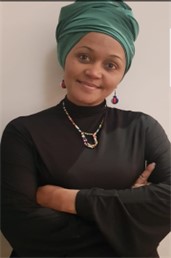
June Josephs-Langa
June Josephs-Langa holds a degree in Sociology and Psychology (University of Witwatersrand), Honours in Psychology (University of Pretoria) and Masters (University of Westminster, UK). Her involvement in education ranged from developing learner and teacher education support material for under-resourced schools at the UKZN’s Centre for the Advancement of Science and Mathematics Education (CASME), to support for innovation for inclusion: digital literacy at a community adult basic education centre in Johannesburg. She has also developed several environments, energy, water demand side management and climate advocacy skills courses for youth and unemployed graduates in her green economy-green jobs work. As a researcher committed to human rights, social justice, equity and inclusion, she has worked in development and social transformation, designing and managing programmes in women’s empowerment, youth development, worker education, environment education, green economy, climate change, education, public health (mental health and HIV Aids). June is a registered PhD student under the SARChI Chair on CAWE. Her research explores equity, inclusion and agency in e-education policy and practice in under-resourced schools. Her other research interests include democratisation of policy, equity in policy practice, monitoring, evaluation and impact of socio-economic development, sociology of education, technology and education, labour, gender, power, human agency, transference of intergenerational trauma, community models of psychosocial support, African literature and philosophies, climate change.
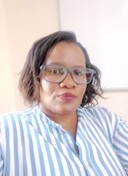
Lerato Msiwa
With a strong background in governance and policy initiatives, Lerato has spearheaded impactful programs on national and local levels in South Africa. She holds a Masters’ degree in Education in Curriculum Studies (Wits University), and has over 10 years of experience in curriculum design and implementation. Her most notable achievements include developing curriculum and learning materials for South Africa’s Department of Basic Education. As an English subject advisor, Lerato continues to design engaging content that addresses misconceptions and enhances core skills in innovative curriculum development, and responsive approaches to learner and teacher needs. A dynamic and creative leader, Lerato describes herself as passionate about driving change through education, language, and the arts.
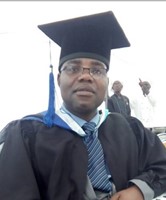
Prince Muzuva
Prince Muzuva holds a Bachelors Degree and Master’s Degree in Development Studies from Zimbabwe Open University and Midlands State University respectively. Since graduating with a Master’s Degree in 2016, Prince has been a part-time lecturer, which he describes as an ‘eye-opener to the marginalisation of Indigenous Knowledge and its people in the mainstream socio-economic affairs of most formerly colonised nation-states’ in Africa. In 2024 Prince published an article online titled ‘Exploring Access to University Education for South Africa`s First Nation People; The Khoi-San’. Prince’s research interests are centred on precolonial and post-colonial education and transformation, decolonisation, sustainable development, indigenous people, indigenous knowledge and women’s rights. His PhD focuses on the challenges and possibilities of integrating indigenous knowledge in high school Geography curricula in post-colonial Zimbabwe and South Africa.
